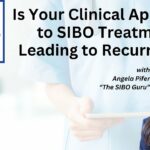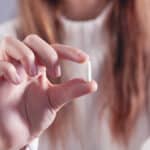Let’s Dig Up Some Dirt on Spore Forming – Soil Based Probiotics
Do you remember when playing in the dirt was the fun and we had less of a focus on ‘anti-bacterial’ products? And, don’t even get me started on ‘hand sanitizer.’
Playing in the dirt might seem like a dirty habit, but it can actually provide some surprising benefits to your health. Studies have shown that exposure to soil, especially in childhood, can help boost the immune system and reduce the risk of allergies and autoimmune diseases. This is because dirt contains a diverse range of microbes, including bacteria, viruses, and fungi, that can stimulate the immune system and help it develop resistance to harmful pathogens. By playing in the dirt, children can strengthen their immune systems and build up a natural defense against a variety of illnesses. So the next time you see your child digging in the garden, don’t discourage them – it might just be one of the healthiest things they can do!
As an adult, what can you do? First, join in the fun and get dirty! Also, you can take a spore-forming probiotic.
Probiotics have become increasingly popular in recent years, as more people seek natural solutions to improve their gut health. While many types of probiotics are available, one type that has gained particular attention in recent years is spore-forming probiotics. Clinically, I place all my patients on probiotics and most of them are on spore-forming probiotics. In this article, we’ll explore what spore-forming probiotics are, how they differ from other types of probiotics, and the potential benefits they may offer. We’ll also review some of the current research on spore-forming probiotics and discuss the future of this emerging field.
What are spore-forming probiotics?
Spore-forming probiotics, also known as spore-forming bacteria, are a type of bacteria that produce highly resistant spores. These spores are able to survive harsh environmental conditions, such as heat, radiation, and chemical exposure. When conditions become favorable, the spores germinate and the bacteria become active again. This unique characteristic allows spore-forming probiotics to survive the acidic environment of the stomach and reach the intestines intact, where they can colonize and provide health benefits.
Some of the most common spore-forming probiotics include strains of Bacillus. Bacillus coagulans is one example of a spore-forming probiotic that has gained popularity in recent years due to its ability to survive the harsh conditions of the digestive tract and its potential health benefits. It’s been widely studied and shown to reduce symptoms of irritable bowel syndrome (IBS), such as bloating, gas, and abdominal pain and as a treatment for SIBO (small intestine bowel overgrowth). It may also help alleviate symptoms of inflammatory bowel disease (IBD), including ulcerative colitis and Crohn’s disease.
How do spore-forming probiotics differ from other probiotics?
One of the key differences between spore-forming probiotics and other types of probiotics is their ability to survive harsh environmental conditions. Most other types of probiotics, such as lactobacilli and bifidobacteria, are sensitive to heat and acid, and may not survive the acidic environment of the stomach. As a result, these probiotics may not reach the intestines in sufficient numbers to provide health benefits.
Another important difference between spore-forming probiotics and other types of probiotics is their ability to remain dormant until conditions become favorable. This allows spore-forming probiotics to survive longer periods of time without food or water, making them ideal for use in supplements and other products that require a long shelf life.
Benefits of spore-forming probiotics
Spore-forming probiotics have been studied for a variety of potential health benefits, including improving gut health, supporting immune function, and reducing inflammation. Some of the most promising research on spore-forming probiotics has focused on their ability to promote gut health.
One study published in the Journal of Clinical Gastroenterology in 2017 found that a spore-forming probiotic supplement containing Bacillus coagulans improved symptoms of irritable bowel syndrome (IBS) in participants compared to a placebo group. The researchers also noted improvements in gut transit time and stool consistency in the group taking the probiotic supplement.
Another study published in the Journal of Digestive Diseases in 2019 found that a combination of spore-forming probiotics and prebiotics reduced symptoms of diarrhea-predominant IBS and improved gut microbiota composition. The study authors noted that the combination of spore-forming probiotics and prebiotics may have a synergistic effect, promoting the growth of beneficial bacteria in the gut.
In addition to improving gut health, spore-forming probiotics have also been studied for their potential to support immune function. One study published in the Journal of Nutrition in 2009 found that a spore-forming probiotic supplement containing Bacillus clausii improved immune function in healthy elderly participants. The researchers noted an increase in natural killer cell activity and a decrease in inflammatory markers in the group taking the probiotic supplement.
Future of spore-forming probiotics
One area of interest is the potential for spore-forming probiotics to prevent and treat antibiotic-associated diarrhea (AAD). AAD is a common side effect of antibiotics, and occurs when the balance of bacteria in the gut is disrupted. Spore-forming probiotics may be particularly effective in preventing AAD, as their spores are able to survive the antibiotics and germinate in the gut to restore bacterial balance.
Another area of interest is the potential for spore-forming probiotics to improve gut health in individuals with inflammatory bowel disease (IBD). IBD is a chronic inflammatory condition of the gut, and current treatments are often limited in their effectiveness. Spore-forming probiotics may offer a promising alternative or complementary therapy for individuals with IBD.
Spore-forming probiotics are an emerging area of research with promising potential health benefits. These probiotics are unique in their ability to survive harsh environmental conditions and remain dormant until conditions become favorable. This makes them an attractive option for use in supplements and other products that require a long shelf life.
Clinically, I have found that the Bacillus coagulans strain has been effective in reducing symptoms of diarrhea-predominant irritable bowel syndrome (IBS) (Dolin, 2009). In addition, a double-blind placebo-controlled multicenter trial of combined probiotics, including spore-forming strains, showed promising results as a complementary therapy for antibiotic-treated diarrhea-predominant IBS (Hong et al., 2019).
As interest in spore-forming probiotics continues to grow, it is likely that we will see more products containing these bacteria on the market. It is important to note, however, that not all spore-forming probiotics are created equal, and it is important to choose products that have been thoroughly researched and tested for safety and effectiveness.
- Dolin BJ. Effects of a proprietary Bacillus coagulans preparation on symptoms of diarrhea-predominant irritable bowel syndrome. Methods Find Exp Clin Pharmacol. 2009;31(10):655-659.
- Hong SN, Lee SH, Moon G, et al. A double-blind placebo-controlled multicenter trial of combined probiotics as a complementary therapy for antibiotic-treated diarrhea-predominant irritable bowel syndrome. J Dig Dis. 2019;20(4):186-196.
- Senesi S, Celandroni F, Salvetti S, et al. Swarming motility in Bacillus cereus and characterization of a fliY mutant impaired in swarm cell differentiation. Microbiology. 2010;156(Pt 2):615-623.
- Hong, H. A., & Duc, L. H. (2019). Cutting edge: Spore-based probiotics to regulate immune function. Frontiers in Immunology, 10, 1662. https://doi.org/10.3389/fimmu.2019.01662
- Huang, L., Li, Y., & Ye, Y. (2021). Effects of spore-forming probiotics on gut microbiota, immune function, and resistance to infection. Journal of Functional Foods, 78, 104385. https://doi.org/10.1016/j.jff.2020.104385
- Majeed, M., Nagabhushanam, K., Arumugam, S., Majeed, S., Ali, F., & Pande, A. (2016). Bacillus coagulans MTCC 5856 supplementation in the management of diarrhea predominant Irritable Bowel Syndrome: a double blind randomized placebo controlled pilot clinical study. Nutrition Journal, 15(1), 1-7. https://doi.org/10.1186/s12937-016-0172-4
- Ouwehand, A. C., Tiihonen, K., Saarinen, M., Putaala, H., Rautonen, N., & Kyrönpalo, S. (2016). A combination of two probiotic Lactobacillus plantarum strains improves the bioavailability of phenolic compounds from kale by reducing their degradation during digestion in vitro. Journal of Functional Foods, 25, 123-133. https://doi.org/10.1016/j.jff.2016.06.034








